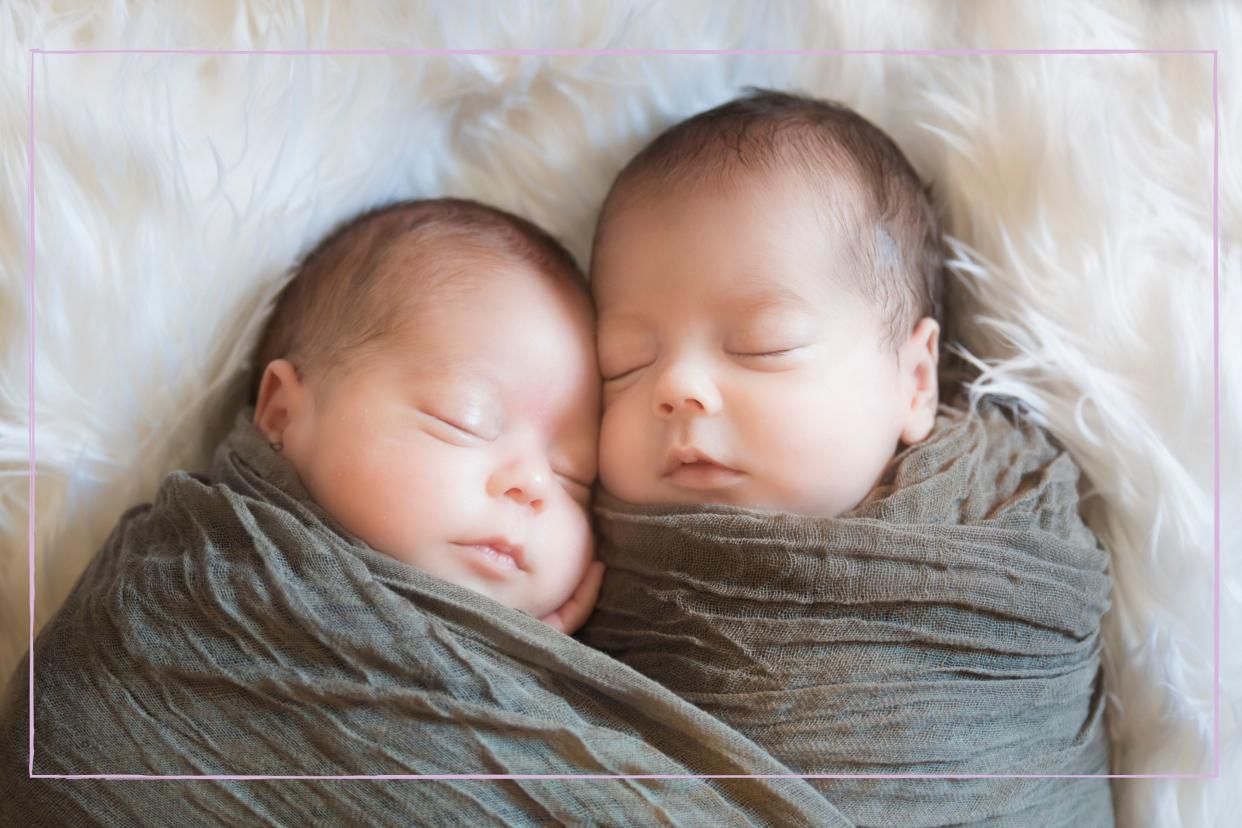Twins Trust calling on leaders to address the ‘systemic inequality’ faced by families with multiples

Families with twins or more face ongoing issues resulting in inequalities, which is why The Twins Trust call on political parties to support five key points in their new manifesto to address the injustice.
For those pregnant with twins or more, the upcoming election could mean a chance to get the government on board with addressing the inequalities faced by parents of multiples. The three main political parties have outlined specifically how their policies will affect families, but the Twins Trust are calling on them to prioritise the ‘systemic inequality’ relating to the financial, health, social and developmental issues faced by families with multiples - the trust states these issues have been absent from election discussion so far.
The trust's Manifesto for Multiples is backed by 100 candidates, with the public urged to contact their own candidates and ask for their pledge of support. Shauna Leven, Chief Executive of Twins Trust and a mother to twins, says "It’s outrageous that in 2024 our families are treated so differently to those without multiples. Families with multiples face financial hit after financial hit just to be able to raise their babies.
The incoming government must acknowledge this disparity and join us to achieve equity for our families. But it’s not just the financial impact – families face a mental health emergency, a downturn in available support, an NHS in crisis needing to support the higher risk pregnancy – and so many more levels of disadvantage. It’s time for change. Approximately 1 in every 50 people in the UK is a twin or triplet – and yet the conversation has ignored our families this election. Now is the time for the voices of families with multiples to be heard."
Manifesto for Multiples: 5 key issues
Implement maternity pay per baby, rather than per pregnancy, for parents of multiples. The current maternity pay system does not address individual needs of families with twins or multiples. These families face greater risks during pregnancy, require more care during pregnancy and after birth, and face significantly greater financial strain. The Twins Trust calls for maternity pay to be paid per baby, rather than per pregnancy, to reflect extra demands.
Amend education policies to ensure parents are listened to when making decisions about keeping siblings together or separating them. The Twins Trust reports the practice of splitting twins, triplets and higher order multiples into different classes or on occasion different schools, can have significant impacts on their psychological and academic wellbeing. Mum of twins, Joanne, tells us "Our twins were split up halfway through their time at primary school. They were devastated but the school insisted it was for their own good. They've never been quite as happy at school since the split and I wish we'd pushed harder to keep them together, I still don't understand reasons for the decision at all." The trust suggests education policies must prioritise parental choice and input in class and school selection.
Introduce compulsory specialised training on multiple births for all midwives, sonographers and health visitors. Multiple births require specialised knowledge and skills due to their complex nature. The Twins Trust insights suggest the majority of midwives, sonographers and health visitors do not have sufficient training to manage these risks effectively, with high staff turnover in this sector further placing mothers and babies at risk. They want to see midwives, sonographers and health visitors have compulsory, comprehensive training on multiple births, covering the specific medical, psychological and logistical challenges involved in multiple births.
Commit to clear targets beyond 2025 for reducing incidence of neonatal and maternal deaths, stillbirths and brain injuries occurring during or soon after birth. The trust advises the government is committed to halving the rates of neonatal and maternal deaths, stillbirths and brain injuries occurring during or soon after birth by 2025. However, they continue to report we aren't on track to meet those targets, with progress stagnating. It's estimated that around 800 baby deaths could have been prevented in 2022/23 with multiples particularly affected by this - better care could have made this preventable. The trust believe politicians need to prove clear commitment to improving maternity and neonatal care through increased funding to meet agreed targets for reducing stillbirths, neonatal deaths, maternal deaths and birth injuries.
Rescue and reform the early education childhood sector so that it's fit for purpose for children, for families - particularly those with multiples - and for the economy. The Twins Trust state the current early education and childcare system is underfunded, unequal and inaccessible to the people who need it the most. This particularly impacts families with multiples who face double or more the costs and increased struggles to find suitable places. They want to see a guarantee that all children, particularly multiples, can access high-quality, affordable childcare provision.
For ways to get involved and register for policy updates, the Twins Trust has all the information you need on their website. Parents of multiples can become members of the trust, and they have a 'Twinline' helpline available support you through any questions you have about the early stages of feeding and sleeping, through to getting to grips with the teenage years with multiples.
Mum Holly Jones shares her IVF and eventual twin birth with us, and we look at the celebrities with twins. We also have a round up of the best twin baby name ideas.

 Yahoo News
Yahoo News 
